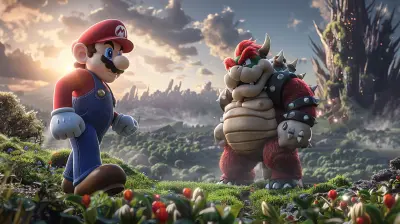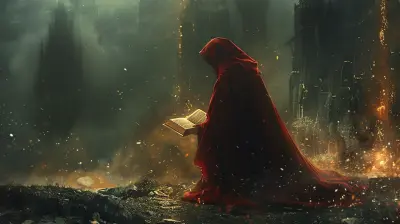Why Dystopian Futures Are So Popular in Sci-Fi Games
22 October 2025
Let’s be honest — there’s just something irresistibly cool about dystopian sci-fi games, right? Whether it’s roaming through a post-apocalyptic wasteland, dodging killer robots, or hacking into corrupt mega-corporations, these bleak, broken worlds have a strange way of pulling us in. But have you ever wondered why dystopian futures are so popular in sci-fi games?
Well, you're not alone. From classics like Fallout and Deus Ex to newer hits like Cyberpunk 2077 and Horizon Zero Dawn, dystopian settings have become a go-to playground for game developers and players alike. Let’s dive deep into why we’re all so hooked on these dark, twisted versions of the future.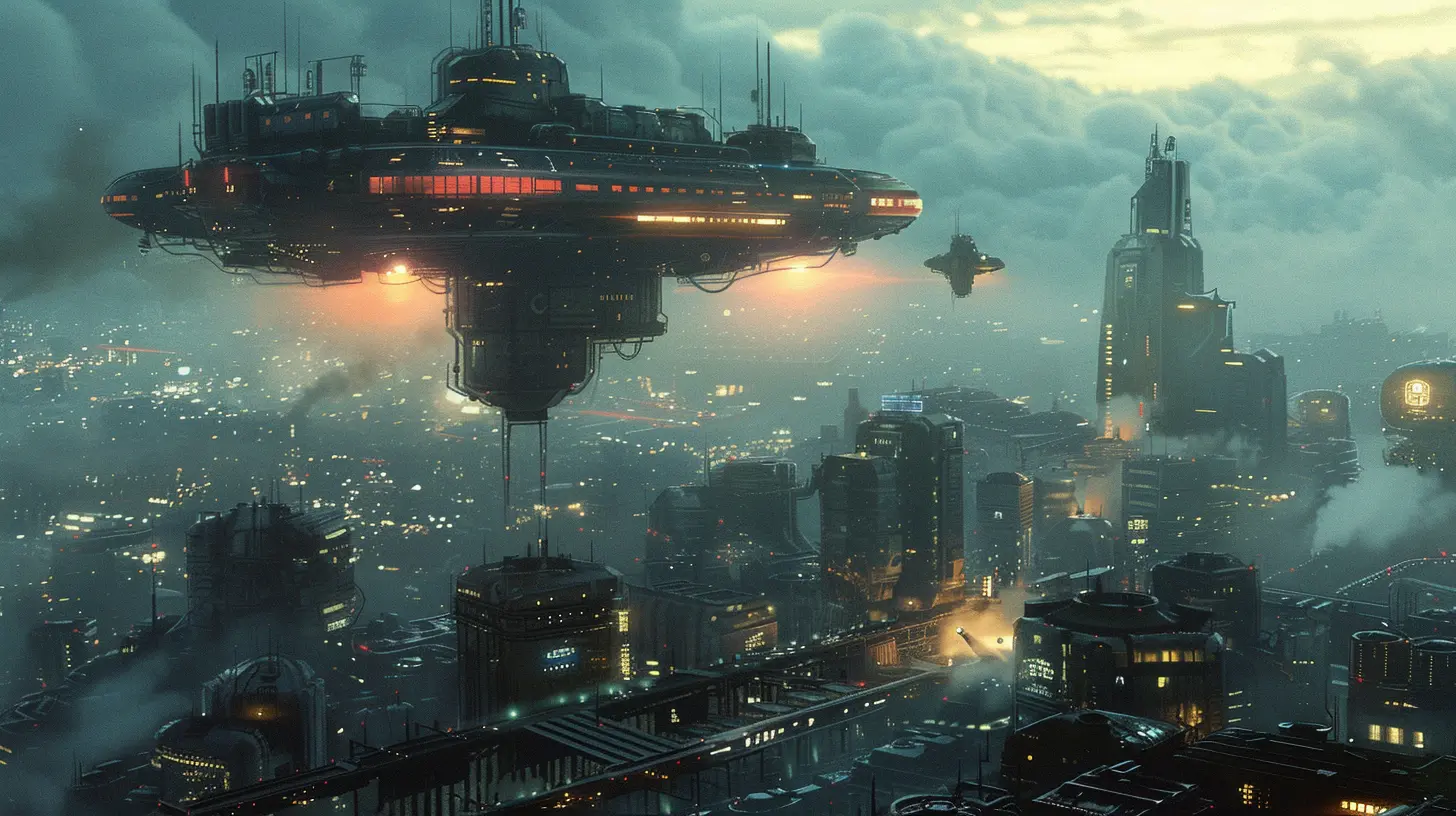
1. The Thrill of Escaping Reality (While Still Kind of Relating to It)
Let’s face it — real life can be rough. We’ve got climate change, pandemics, social unrest, and a nonstop stream of bad news. Now, imagine a future where all of that has spiraled completely out of control. Sounds terrifying, right? And yet… kind of fascinating.Dystopian sci-fi games give us a way to escape, while still letting us explore themes that feel eerily familiar. They take our current fears and crank them up to eleven. The result? An exhilarating (and sometimes cathartic) form of storytelling that gives us space to process the chaos of the world — without actually living through it.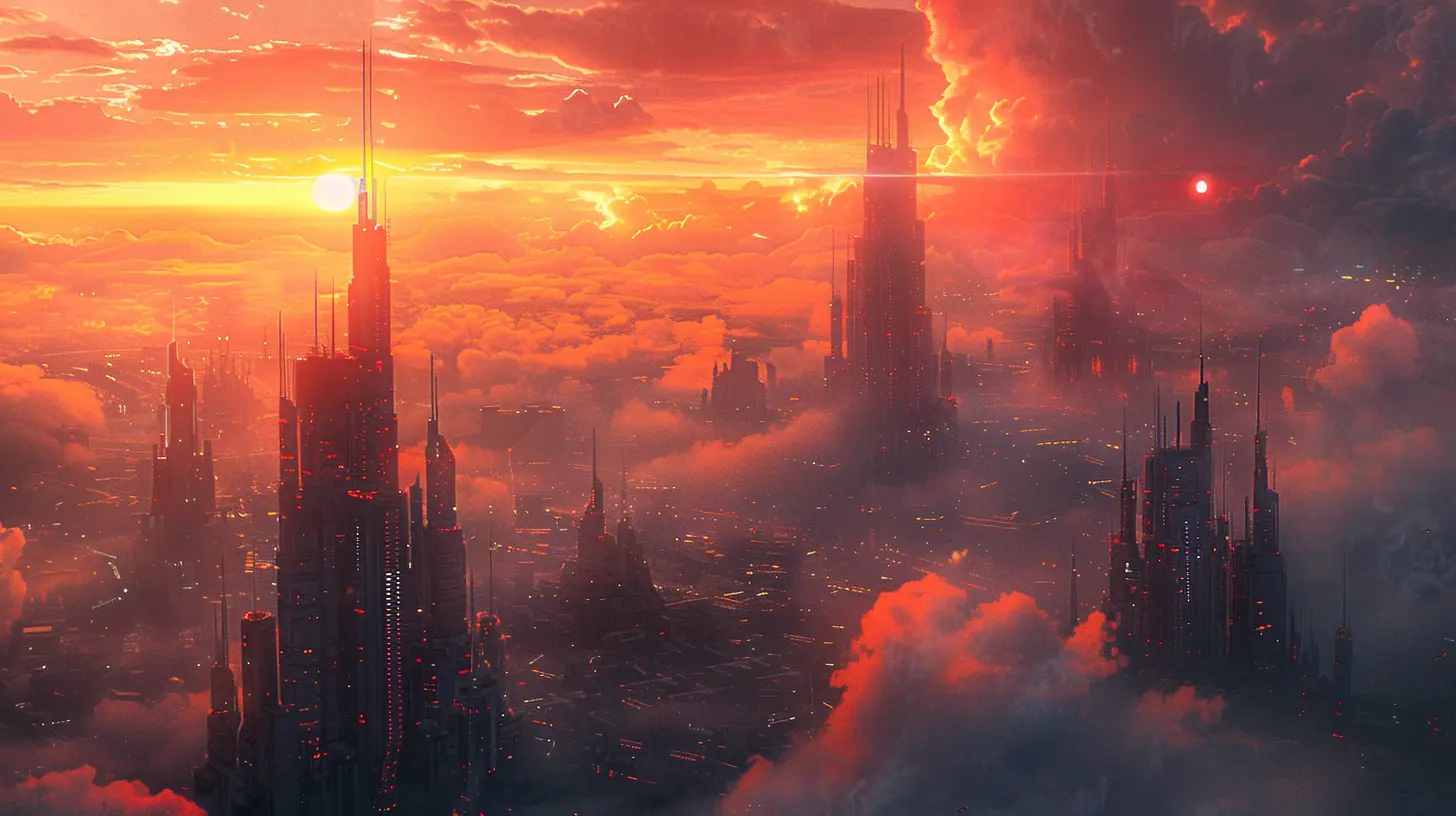
2. Conflict and Drama Make for Better Gameplay
Every great story needs conflict, and dystopian futures are basically conflict on steroids. You’ve got evil corporations, rogue governments, mutated creatures, resistance groups, and broken societies all tangled together. That’s pure gold when it comes to making exciting, dramatic gameplay.Think about it: Would The Last of Us be half as compelling if it took place in a peaceful countryside where everyone got along? Probably not.
Dystopias create natural tension. That tension fuels the game’s plot, drives the player's decisions, and spices up every mission with a hefty dose of “what’s gonna happen next?”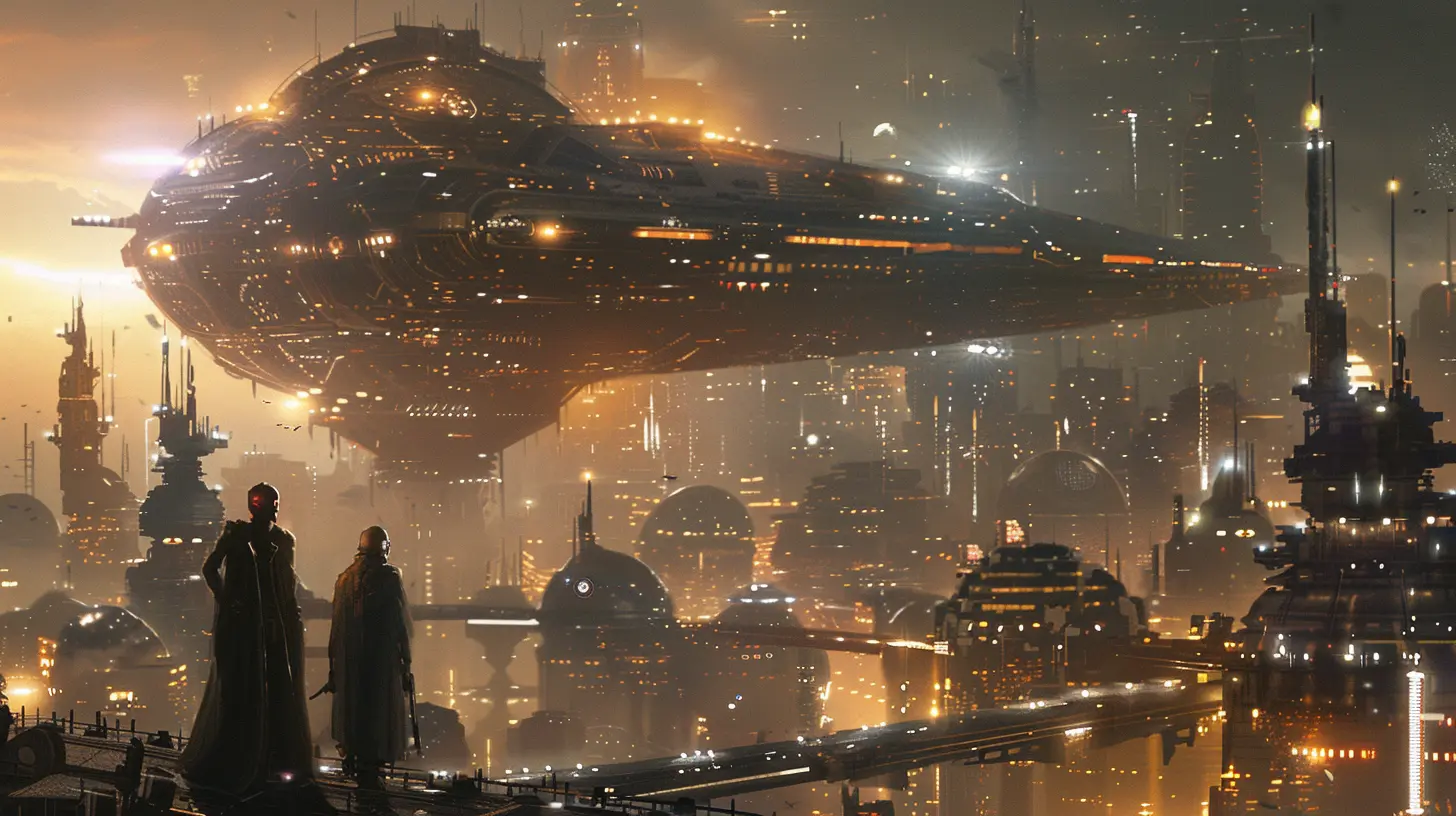
3. Moral Gray Areas Keep Things Interesting
In dystopian worlds, nothing is black and white. You’re not playing the squeaky-clean hero; you’re making tough choices that don’t always have clear right or wrong answers. That’s part of what makes sci-fi games like Mass Effect, Bioshock, or Detroit: Become Human so memorable.These games force you to wrestle with ethical dilemmas:
- Do you sacrifice one to save many?
- Do you trust the rebel cause, or are they just as corrupt?
- Do you help a stranger knowing it could cost you later?
It’s messy. It’s fascinating. And it keeps players thinking long after they’ve put down the controller.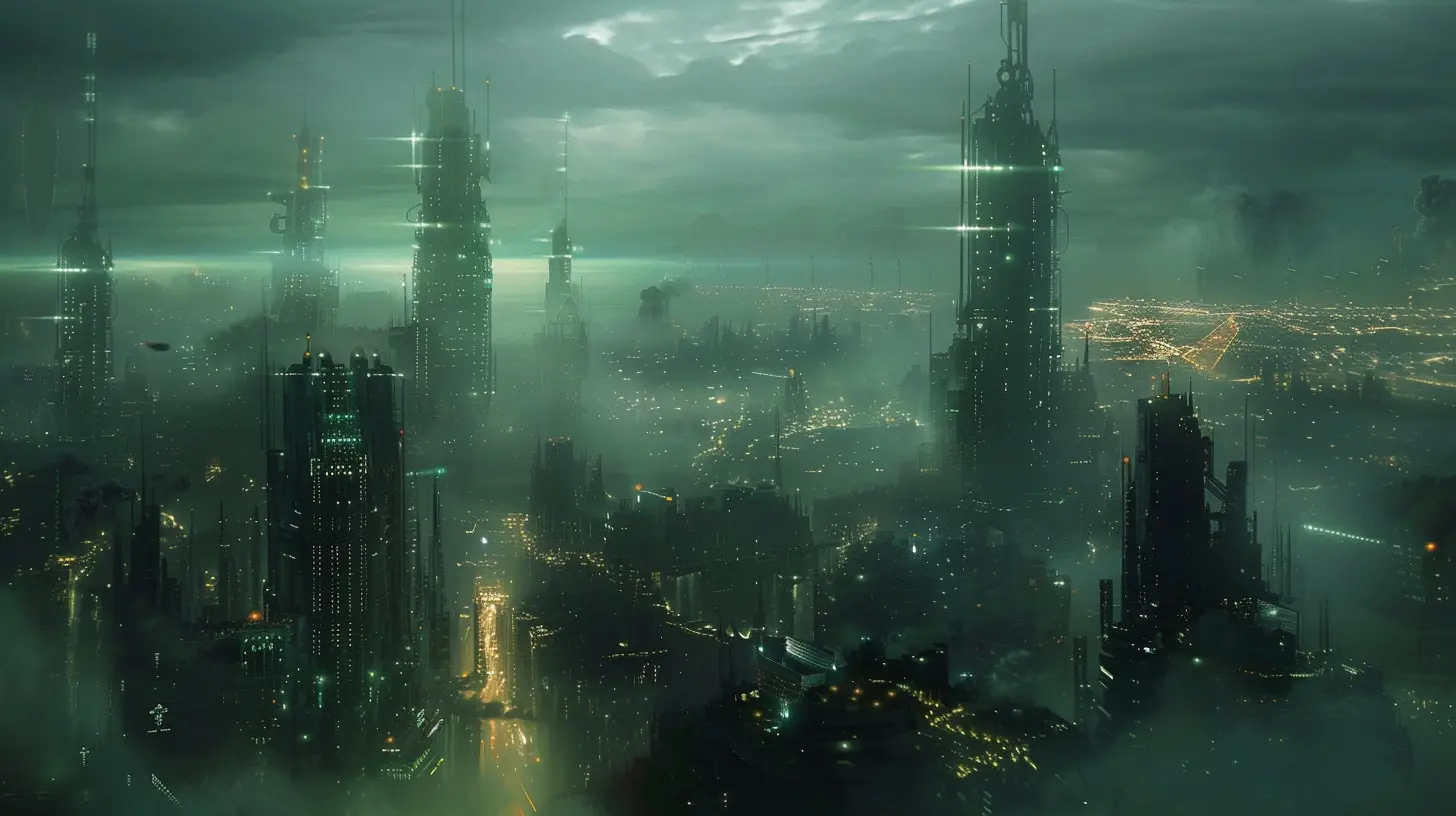
4. The Aesthetic is Just Plain Cool
Okay, let’s get a little shallow — dystopian games just look awesome.Gritty urban decay. Neon-lit cityscapes. Futuristic ruins covered in vines. Giant mechs lurking in fog. Rusty weapons, cybernetic implants, glowing visors. The whole vibe is tailor-made for unforgettable visuals and moody soundtracks.
Art teams and composers love working on dystopian games because the creative freedom is off the charts. Players love them because every screenshot could be album cover-worthy. It’s a win-win.
5. World-Building Possibilities Are Endless
One of the biggest appeals of sci-fi games is world-building — and dystopian futures are like a sandbox for imagination. You can:- Invent bizarre societies with strange rules
- Mash up future tech with ancient traditions
- Create ruined cities full of hidden stories and secrets
Games like NieR:Automata or Death Stranding lean all the way in, crafting bizarre but beautiful nightmare worlds that feel totally unique. You’re not just playing through a story — you’re uncovering a whole universe, one crumbling brick at a time.
And let’s be real: there’s something weirdly satisfying about piecing together the fall of civilization from dusty terminals, audio logs, and cryptic graffiti.
6. It's a Playground for "What If?" Scenarios
Gamers love asking “what if?” And nothing answers that better than a solid dystopian setup.- What if AI took over?
- What if climate change went unchecked?
- What if government collapsed completely?
- What if humanity had to live underground?
Dystopian games give you the space to dive into all those hypotheticals. They exaggerate real-world trends into catastrophic results, then let you explore the aftermath. It’s part simulation, part cautionary tale, and all-around fascinating.
7. There's Room for Hope (And That Means Something)
You might think dystopias are all doom and gloom, but here’s the twist: they often have a surprising amount of hope. Sure, the world’s broken. But you get to be the one trying to fix it — or at least survive it.That sense of agency is powerful. It’s about resilience, perseverance, and finding light in dark places. Games like Horizon Zero Dawn balance devastation with beauty. Metro Exodus lets you lead your people to a better life. Even when the world is in ashes, the stories remind us that humanity can adapt, resist, and push forward.
In a weird way, dystopian games end up being some of the most inspiring out there.
8. They Gauge Our Relationship with Technology
Let’s talk tech. Because if there’s one thing that’s almost always at the heart of a dystopian sci-fi game, it’s technology gone wrong.Whether it’s sentient AI (SOMA), body modification (Cyberpunk 2077), or oppressive surveillance systems (Watch Dogs: Legion), these games dive into our love-hate relationship with technology. They make us think:
- How much control are we giving up?
- Who’s really pulling the strings?
- Is convenience worth the cost?
These themes hit hard because they echo real conversations we’re already having in the real world. The fiction feels like it’s only one or two steps ahead of our current reality — and that makes it all the more compelling.
9. Survival Mechanics Keep You on Your Toes
Let’s not ignore the gameplay side of things — dystopian games often come with survival mechanics that make every action feel meaningful.Scrounging for supplies, managing limited resources, avoiding radiation zones, or sneaking past enemies because ammo’s too scarce — it adds a layer of tension that you just don’t get in other genres. The stakes are always high, and staying alive becomes its own kind of puzzle.
Gamers love a good challenge, and dystopian settings deliver that in spades.
10. Let's Be Honest, We're a Little Obsessed with the End of the World
Maybe it’s human nature. Maybe it’s curiosity. But for whatever reason, we’re obsessed with the idea of how everything ends.We watch apocalyptic movies, read end-of-the-world books, and play games that drop us into the aftermath. Why? Because imagining the collapse of society — and what comes after — forces us to confront who we are. What matters. Who we become when things fall apart.
Dystopian games don’t just show us the end — they let us live it, fight through it, and maybe, if we’re lucky, rise above it.
Final Thoughts: Why We Keep Coming Back
Dystopian futures resonate because they tap into both our fears and our fantasies. They ask big questions (and pack them into slick gameplay), push us to our limits, and let us explore the worst possible outcomes — all while searching for a spark of something better.They let us be rebels, survivors, hackers, and heroes, all in one beautifully broken world.
So the next time you boot up a sci-fi game and the world’s gone to hell, don’t panic. You’re right where the fun begins.
all images in this post were generated using AI tools
Category:
Sci Fi GamesAuthor:

Emery Larsen
Discussion
rate this article
1 comments
Brooke Smith
Great article! Dystopian futures really resonate with players, offering both thrilling challenges and a chance to explore societal themes. It's fascinating how these settings spark creativity and encourage us to reflect on our own world. Can't wait for more dystopian adventures!
October 31, 2025 at 6:04 AM

Emery Larsen
Thank you! I'm glad you enjoyed the article. Dystopian futures do spark deep reflections and creativity, and I look forward to exploring more of these themes in future adventures!
